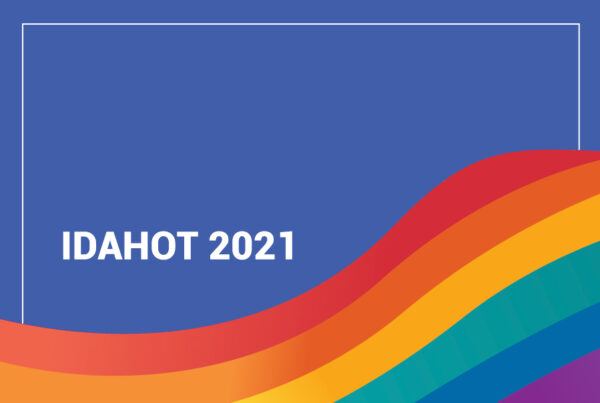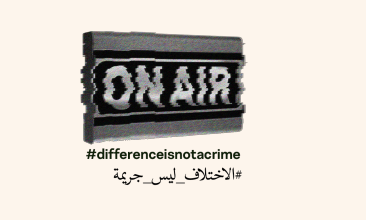Fast travels and easy transportation have made our world smaller than ever before. Covid-19 was able to spread throughout the world causing fear and panic in many countries, forcing them to take measures that our generation has never encountered before like social distancing and curfews. On a more personal level, humanity has understood that their regular rituals that might sound trivial at first like washing hands with soap, is essential in prevention and protecting us against the CoronaVirus. We still hope that the situation will get better as we contain the virus, but it’s a lot more complicated than what many of us expected– and it’s also challenging for the most advanced countries and healthcare systems in the world. Currently, different drugs that might be effective against COVID-19 are already in clinical trials, and a vaccine could be developed in 18 months, maybe 12 if we’re lucky. Humanity has never been focused on fighting a certain disease as much as it is doing now.
Yet the pandemic monster is lurking again, especially for the LGBTQI+ community. During the AIDS epidemic people lived in constant fear of losing loved ones or catching the virus. Panic and fear were emerging among many in the community, especially that little was known about the virus and because of high levels of stigma that HIV was even called the Gay-related immune deficiency (GRID). Over the years, as the picture got clearer we have learned to cope with it, fight stigma, and to protect ourselves using various methods including condoms, Pre-Exposure Prophylaxis (PREP) and others.
Currently, the situation of the LGBTQI+ community in the MENA region during this pandemic is not any better. Discrimination and stigma are highly persisting on top of the current political and economic situation, which is rendering the majority of the community in a vulnerable position. But if anything, the past has taught us a lot–so here are a few other lessons that we can learn from the ones who lived during the AIDS epidemic:
- Keeping others safe
Social distancing and curfews can be hard especially for many people who don’t have the luxury to stay home during this time, as some LGBTQI+ individuals do not have any financial support. So, lots of members of this community might find themselves forced to work during quarantine.
If we find ourselves in such a situation, we should always assume that we are carrying this virus. Back at home we have to quarantine ourselves, keep distance from others, have our own cups and plates, disinfect our stuff, and most importantly wash our hands.
COVID-19 is tricky, it remains infectious for three hours in the air, and for three days on plastic and stainless steel. Thus, it’s very important to be careful because we might easily transmit it to others. Even if we do not show any symptoms, the risk is still there which is why Covid-19 was able to spread easily and is difficult to contain.
At the end, as LGBTQI+, community support is so important to us. Therefore, as much as we count on others to keep us safe we have to do the same.
- Be vigilant
HIV prevention has evolved over the years, but it was not understandable for many at the beginning. People needed to adapt to using condoms in any situation possible. When it comes to HIV prevention condoms are the easiest and most common preventive measure. However, prevention against Coronavirus is social distancing and washing hands regularly. Getting used to these new habits might be difficult at the beginning, but it is crucial.
As LGBTQ+ individuals our social life is somehow sacred, being surrounded by loved ones, being ourselves, not confined, going to community safe places even though there are not many in the region, was and still is a relief for many. Now we are forced to stay away from each other which may seem very hard to adapt at first, but it is understandable. Keep in mind the benefits of distancing ourselves for now, because it will ensure seeing our loved ones in the future as it’s only temporary.
Another adjustment that we should do is washing our hands effectively for 20 seconds to improve our hygiene, which has proven to protect us against different infections like the CoronaVirus.
- We Are the Only Caretaker for Ourselves
Many of us face discrimination in healthcare settings even before COVID-19. Also, the concept of HIV Prevention did not exist until the past few years in many countries in the MENA region. LGBTQI+ members were the ones implementing prevention methods and ways to protect us against different infections. While some governments joined this movement in a relatively shy way and still need to improve their healthcare systems. Additionally, many countries in the region criminalize key populations who are at high risk of catching HIV, which is why people living with HIV often find difficulties in getting proper treatments and care.
In other words, we are alone, our governments do not have the capacity nor the proper training to treat this matter effectively. We have always been innovative and creative in finding ways to survive from injustice, discrimination, and epidemics throughout the years. If we are careful enough, we can get through this.
- Be careful of certain “jokes”
I do not think anyone would understand how bad “jokes” can be as much as a member of the LGBTQI+ community. Since the beginning of the pandemic, social media was teeming with jokes about China and Covid-19 and bats. Linking any racial or social background or any form of identity to an infection is bad and harmful, even if it starts as a joke. With the repetition of such “sarcastic” statements, the relation between certain infections and groups may turn into discrimination, hate speech, and as a tool to suppress others–we have to be very careful about that. COVID-19, HIV or any other infection could affect anyone regardless of their race, gender, class and sexual orientation especially if they don’t take proper precautions.
HIV has always been connected to LGBTQI+ people, and has been used as an excuse to detain and to eliminate LGBTQI+ members in many countries around the world. Even if it was not the case, people living with HIV are usually stigmatized and prosecuted by their own societies. We have to break the cycle and stop these hateful jokes.





